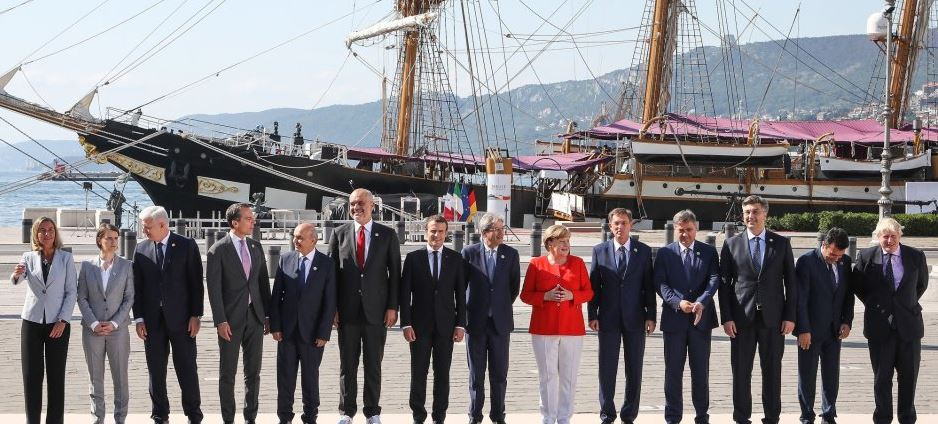The Western Balkans and the European Union Moving? In the Right Direction?

Practical information
Themes and regions
Related centers and programs
This is a private event.
Learn more about our corporate support packagesA Roundtable in the Framework of the Austrian Presidency of the Council of the European Union. There is currently movement on the EU enlargement front. Howewer, it could turn out that new steps actually reversed the direction. After Berlin, Vienna , Paris and Trieste, as news Western Balkans Summut will take place in the framework of the Berlin process in London in July.

In May 2018, an EU-Western Balkans tool place in Sofia - fifteen years after the Thessaloniki Declaration in which the EU promised a "EU perspective" to the Western Balkan countries. And in February 2018, the EU issued a new Enlargement Strategy.
However, the EU travails with its reform agenda, negotiations about the new EU budget, Brexit and other troublesome issues continue to capture the bulk of the attention and to mobilise most of the energy of the member states and EU institutions. Progress in the Western Balkans remains uncertain at best, in terms of democracy, good governance, economic development and good-neighbourly relations.
An increase of the frequency of enlargement-related meetings, even on highest levels, will hardly alter the reality of these challenges. Innovative approaches to EU enlargement, differentiated integration, economic transformation, regional cooperation and democratic participation are required if both the EU and the potential future members want to overcome the business as usual approach, which has governed EU-Western Balkans relations for most of the past 20 years.
This event will follow up on the most recent developments in EU-Western Balkans relations and discuss the membership perspectives of the Western Balkans in the current international political and economic context:
- What conclusions can we draw from the new EU enlargement strategy and country reports?
- What are the results of the EU-Western Balkans Summit of Sofia of May 2018 and the European Council 28-29 June 2018?
- What can be expected from the London meeting in July 2018?
- How successful has the Berlin process been in maintaining the impetus of a slowed-down accession process?
- What will be the future of the Berlin Process thereafter?
- To which extent are the EU’s internal reform agenda and Western Balkans accession perspectives linked?
- What should be changed in the EU’s approach towards the Western Balkans to make it both more effective and more credible?

Related Subjects
Other events

EV Supply Chains for Japan and Europe: Strengthening Economic Security
Economic security aims to ensure the resilience of supply chains for key industries: the case of electric vehicle production in Japan and Europe will be discussed.

From Ambition to Action: Exploring Technological Partnerships with India
The 16th EU-India Summit, held on January 27th in New Delhi with European leaders António Costa, Ursula von der Leyen, and Prime Minister Narendra Modi, marks a significant milestone in deepening EU-India relations. At the same time, official bilateral visits from EU member states are on the rise, including that of the French President, who visited India in February to participate in the Artificial Intelligence Summit. As India asserts its technological ambitions and seeks to reduce its dependence on China, Europe is stepping up its efforts to diversify its strategic partnerships.






